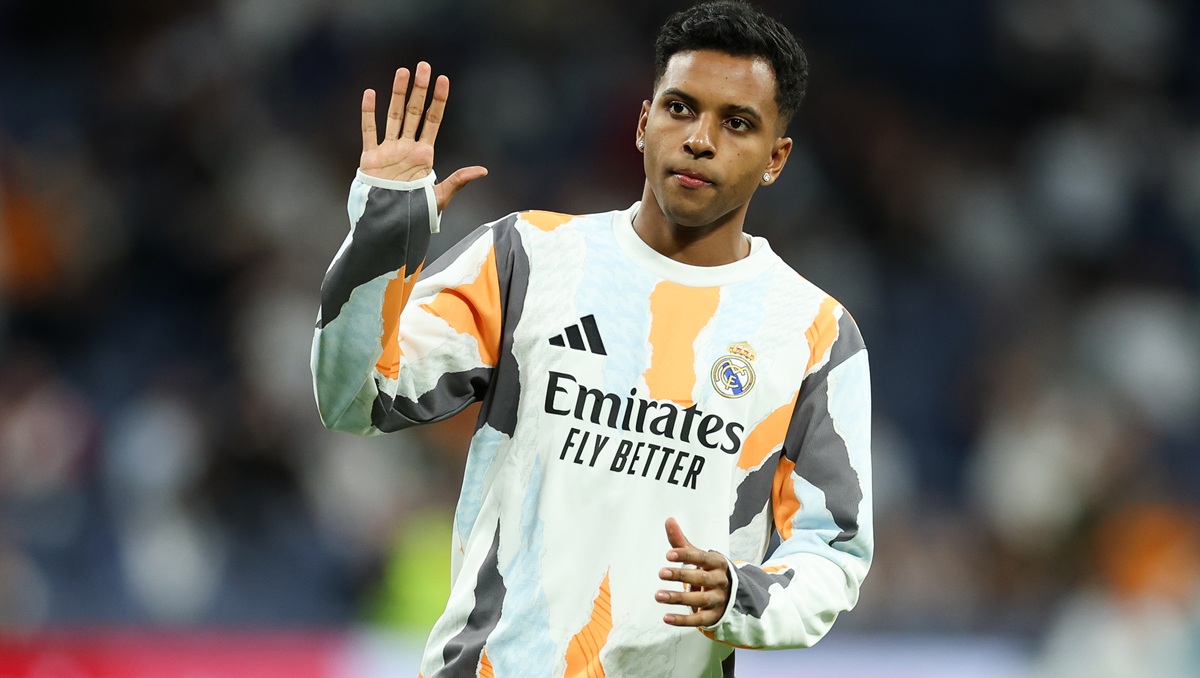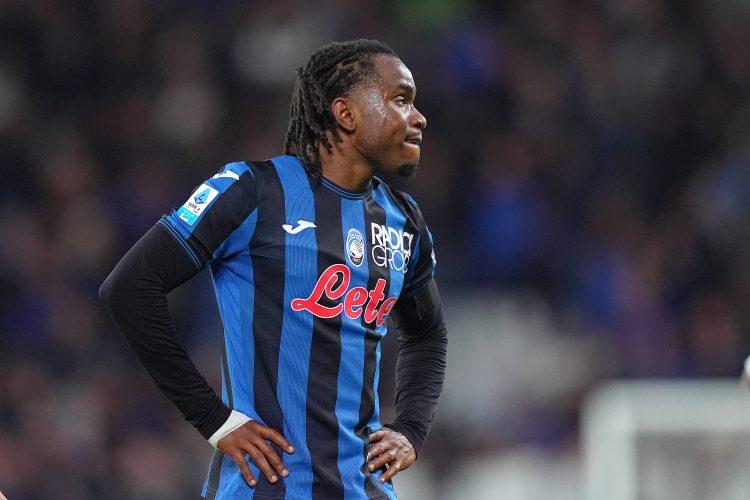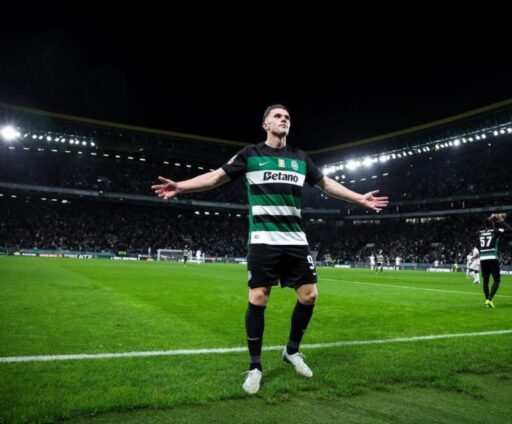Footballer Thomas Partey’s rape charges rock Ghana Black Stars, former club Arsenal, and World Cup hopes
Former Arsenal midfielder Thomas Partey’s rape and sexual assault charges in the United Kingdom pose a huge danger to the Ghana Black Stars and English football. The possibility of losing Partey as a cornerstone player could weigh heavily on Ghana's morale and performance in the upcoming African Cup of Nations and 2026 World Cup qualifiers. This raises concerns for both FIFA and the Ghana Football Association.
The Ghanaian Midfield Maestro Thomas Partey remains a household name in his home country of Ghana. He has 53 caps and 15 goals to his credit as a mainstay for the Black Stars. The award-winning international footballer spent ten years playing in Spain and England's top leagues.
He represented Ghana at the 2022 FIFA World Cup, where his dominant performance was instrumental for the Black Stars in midfield. He played seven years for Atletico Madrid, winning La Liga title and the UEFA Europa League. He was a 2016 Champions League finalist.
Partey transferred to Premier League club Arsenal for £45 million (GH₵700 million) in 2020. He had been a key player under manager Mikel Arteta for the majority of his five seasons at the Emirates Stadium, appearing in 167 games in all competitions.
Partey appeared in 130 Premier League games for Arsenal, scoring nine goals. Arsenal did not renew Partey’s contract at the end of last season.
Partey has been charged with five counts of rape and one count of sexual assault in the UK. These are very serious accusations that allegedly involve “three separate women who reported incidents which took place between 2021 and 2022.”
The Metropolitan Police said those charges included two counts of rape against one complainant, three counts of rape against a second complainant and one count of sexual assault against a third.
The 32-year-old soccer player has been under investigation over rape allegations since February 2022, and was initially arrested in July that same year. The United Kingdom’s Crown Prosecution Service (CPS), an independent agency that prosecutes criminal cases investigated by police and other investigative entities in England and Wales, detailed those rape charges Friday afternoon.
“The Crown Prosecution Service has today authorised the prosecution of Thomas Partey for multiple counts of rape after carefully reviewing a comprehensive file of evidence,” said Jaswant Narwal, the chief crown prosecutor for CPS London North.
“Our prosecutors have worked closely with officers in the Metropolitan Police who have carried out the investigation, to review the evidence and advise on the appropriate charges,” Narwal added.
Partey’s lawyer, Jenny Wiltshire of Hickman and Rose, released a statement expressing his client’s desire to prove his innocence.
“Thomas Partey denies all the charges against him,” it said. “He has fully cooperated with the police and CPS throughout their three-year investigation. He now welcomes the opportunity to finally clear his name. “Given that there are now ongoing legal proceedings, my client is unable to comment further.”
In the UK, the maximum sentence for rape is life imprisonment. However, the sentencing range for rape convictions, as set by the Sentencing Council, is usually between 4 and 19 years of custody. The sentence depends on some of these factors, including the extent of harm to the victim and the culpability of the defendant.
Rape is among the most challenging crimes to get a conviction for.
In its guidelines regarding how it charges and prosecutes rape cases, the CPS says it has to be convinced that there is enough evidence to offer a “realistic prospect of conviction” before it can allow the investigating police force to charge the defendant.
That ultimately will be based on the evidence available and it will be up to prosecutors to try to convince a jury at any trial that the defendant did not have “reasonable belief” that the victim was consenting to the sexual act.
Partey has been questioned by the Met Police on several occasions following the initial arrest, with bail regularly extended, allowing him to continue playing for Arsenal.
Arsenal were slammed for allowing Partey to play. He stayed with the club while under investigation. That is one of those recurring issues in football. Clubs tend to cite due process and the presumption of innocence. However, the public often demands immediate suspension. This case highlights the tension between legal rights and moral responsibility.
Reacting to the case Friday night, Arsenal said in a statement: “The player’s contract ended on June 30. Due to ongoing legal proceedings the club is unable to comment on the case.”
The Football Association and the Premier League have declined to comment.
This incident might set a precedent for the way other European clubs address similar allegations against African players, which could affect transfer decisions and player welfare policies, ultimately determining the conditions for future African talent aspiring to play in elite European leagues.
English Football has a history of high-profile players facing serious sexual assault charges. Partey is the latest player to leave (now former) employer under fire.
Some have continued to play while under investigations. Benjamin Mendy, the former Manchester City full-back, continued to play despite having facing multiple rape charges in August 2021. Mendy was later acquitted of some of them. Cristiano Ronaldo also faced rape allegations, which were later dismissed. Mason Greenwood of Manchester United was suspended and his rape charges later dropped.
Each case is unique. Clubs tackle these situations differently. "The outcomes of these cases have varied, with some players experiencing significant career setbacks, while others have managed to continue their careers after being cleared of wrongdoing," a sports ethics expert said.
Now a free agent, Partey's future career is highly unpredictable. His immediate focus is his legal battle — he’s due back in court on August 5.
His lawyer says, "Thomas Partey denies all the charges against him. He has fully cooperated with the police and CPS throughout their three-year investigation. He now welcomes the opportunity to finally clear his name."
Even if his name is cleared, it will be challenging to find given the sort of scrutiny and backlash he had faced. This underscores the vulnerability of athletes to have their careers disrupted and the psychological toll of such long legal battles.
The Ghana Football Association (GFA) is at the crossroads. Partey is a legend at home. His involvement in such a case could tarnish the reputation of the sport. The GFA will have to navigate this case strategically. Public statements will be important. They must balance supporting a national icon while condemning alleged misconduct. Though GFA did not immediately release a statement on Partey’s charges, their track record in integrity matters suggest a commitment to addressing issues that "compromise the integrity of the game."
The Black Stars must now prepare for upcoming AFCON and World Cup qualifiers, possibly without Partey. Soccer analysts have noted this is a "huge blow" as he brought both skill and "leadership." This situation "will test the depth and resilience of the squad,” one Ghanaian football fan said.
In addition to on-field challenges, star- player controversies can impact major national team sponsorships, potentially affecting funding for grassroots development. The Black Stars' recent GH₵20 million KGL Group sponsorship shows the significance of such partnerships.
A lengthy legal battle could undermine future profitable transactions and cripple Ghana's competitiveness on the biggest stage, including future World Cups. The performance of the team will be under increased observation, not just from a tactical perspective, but in how they handle this high-profile crisis as a group.
FIFA players conduct policies permit sanctions, usually after a conviction. In Partey’s case, this could mean a global ban from all football activities, and set a precedent for accountability. FIFA President Gianni Infantino emphasized that "football sanctions alone are insufficient" for serious misconduct, reinforcing FIFA’s commitment to the integrity of the sport against criminal acts.
FIFA's revised Code of Ethics, which came into effect in August 2019, specifically addresses sexual abuse and exploitation, mandating "minimum sanctions of ten years" for violations. That is to say, a very real consequence if Partey is found guilty, sending a powerful warning ahead of the upcoming World Cups. FIFA’s response to this situation, especially in a World Cup year, will be crucial in creating an international precedent for how football confronts grave off-field misconduct by its highest-profile athletes.
A conviction would mark the end of Partey's football career. It will possibly lead to a lengthy UK prison sentence and loss of multi-million Cedi endorsement deals. His reputation would be permanently damaged, serving as a reminder of accountability.
As Chief Crown Prosecutor Jaswant Narwal had noted, "We remind everyone that criminal proceedings are active, and the defendant has the right to a fair trial. We know there will be significant public interest in this announcement, but it is absolutely vital that there is no reporting, commentary or sharing of information online which could in any way prejudice these proceedings."
The impact on his personal life and legacy would be catastrophic, a cautionary tale for emerging African athletes.
An acquittal would exonerate Partey legally, but for the public eye, it remains a difficult hurdle. Rebuilding his career and brand would be massive; as one legal expert explained, "the reputational impact for public figures in such cases is often profound and long-lasting."
For Partey, an acquittal is a fight to regain control of his own narrative and persuade clubs and supporters that he’s worthy of a second chance. This is a hard road for many African players in the same predicament. His potential comeback to the Black Stars would also complicate things for the GFA, torn between public sentiment and legal vindication. This, as lingering doubt, threatens African athletes whose careers depend on public trust.
You may also like...
Diddy's Legal Troubles & Racketeering Trial

Music mogul Sean 'Diddy' Combs was acquitted of sex trafficking and racketeering charges but convicted on transportation...
Thomas Partey Faces Rape & Sexual Assault Charges

Former Arsenal midfielder Thomas Partey has been formally charged with multiple counts of rape and sexual assault by UK ...
Nigeria Universities Changes Admission Policies

JAMB has clarified its admission policies, rectifying a student's status, reiterating the necessity of its Central Admis...
Ghana's Economic Reforms & Gold Sector Initiatives

Ghana is undertaking a comprehensive economic overhaul with President John Dramani Mahama's 24-Hour Economy and Accelera...
WAFCON 2024 African Women's Football Tournament

The 2024 Women's Africa Cup of Nations opened with thrilling matches, seeing Nigeria's Super Falcons secure a dominant 3...
Emergence & Dynamics of Nigeria's ADC Coalition

A new opposition coalition, led by the African Democratic Congress (ADC), is emerging to challenge President Bola Ahmed ...
Demise of Olubadan of Ibadanland
Oba Owolabi Olakulehin, the 43rd Olubadan of Ibadanland, has died at 90, concluding a life of distinguished service in t...
Death of Nigerian Goalkeeping Legend Peter Rufai

Nigerian football mourns the death of legendary Super Eagles goalkeeper Peter Rufai, who passed away at 61. Known as 'Do...



)
